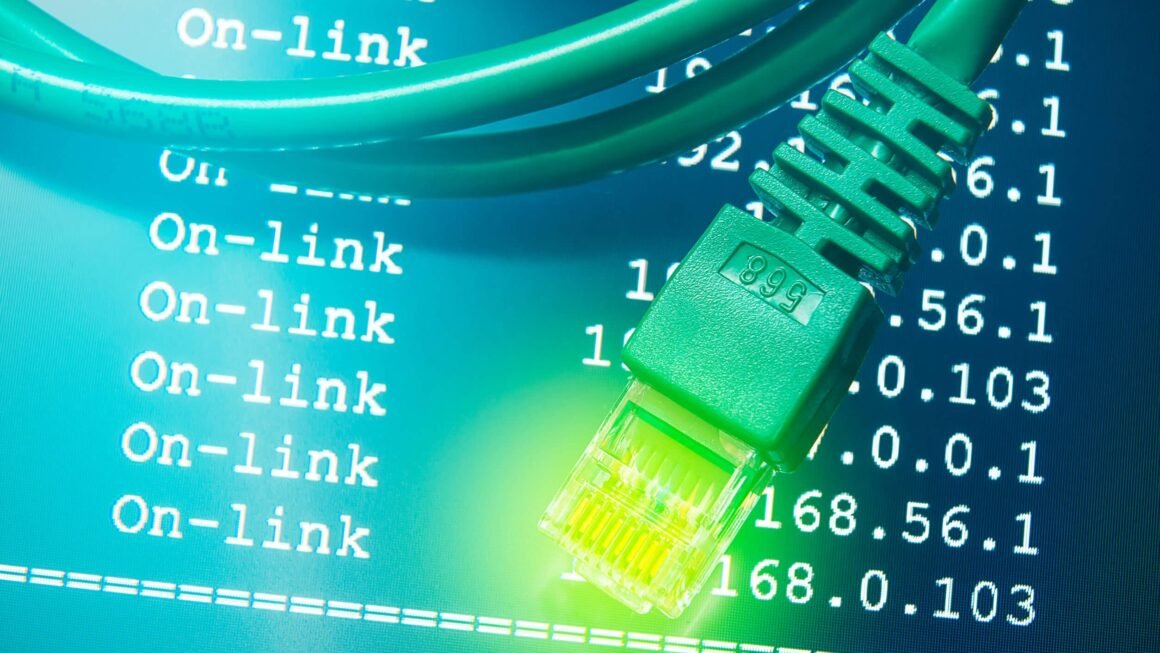In the intricate world of internet connectivity, IP addresses serve as the fundamental identifiers for devices on a network. Among the billions of addresses that are assigned across the globe, 149.52.99.226 stands out as a unique identifier in the broader landscape of digital communication. But what does this particular IP address signify, and why is it important? In this article, we will delve into everything related to 149.52.99.226—from its technical aspects to its role in privacy, cybersecurity, and the broader networking landscape.
What is an IP Address?
Before we dive into specifics about the IP address 149.52.99.226, it’s essential to understand what an IP address is and why it is crucial in networking. An IP (Internet Protocol) address is a unique string of numbers assigned to each device connected to the internet or a local network. It acts as a digital address that allows devices to send and receive data over the internet. Without IP addresses, communication between devices and websites would be impossible.
There are two types of IP addresses: IPv4 and IPv6. The address 149.52.99.226 is an example of IPv4, the most widely used protocol, which consists of four sets of numbers separated by periods (e.g., 192.168.1.1). The IPv4 protocol, however, has a limitation in the number of unique addresses it can generate, which is why IPv6 was introduced as a solution.
The Role of 149.52.99.226 in Networking
When we look at the IP address 149.52.99.226, we are examining a specific identifier assigned to a device or server. But how does it fit into the larger network? Every time a user connects to a website, sends an email, or engages in any form of online activity, their device communicates through an IP address. This communication occurs via routers, servers, and other devices that help route data to and from the correct destination.
How IP Addresses are Used
In the case of 149.52.99.226, it might be assigned to a specific server, website, or service. Typically, an IP address like this is static, meaning it doesn’t change unless reconfigured by an administrator. However, dynamic IP addresses, which are common for consumer-level internet connections, can change each time a user connects to the internet.
The purpose of 149.52.99.226, like other IP addresses, is to act as a unique identifier that allows data packets to be routed properly across networks. Whether this address is associated with a corporate server or an internet service provider (ISP), it ensures that data reaches its intended destination.
Locating 149.52.99.226: Geolocation and Lookup
Using an IP address like 149.52.99.226, one can perform an IP geolocation lookup to determine the approximate physical location of the device or server associated with the address. Tools such as IP lookup services can reveal the region, city, and even the ISP (Internet Service Provider) that owns the address. However, it is important to note that geolocation data from an IP address is not always 100% accurate, as the address could be routed through various proxies, VPNs, or servers that obscure the true origin.
How to Perform an IP Lookup
Several online tools and websites allow users to enter an IP address and receive information about its location. These tools will often provide the following details:
- The country and city associated with the IP address
- The ISP that owns the IP address
- The region or network to which the address belongs
- The latitude and longitude coordinates, providing a general idea of where the address is located
Performing a lookup for 149.52.99.226 would give you an understanding of its geographical association and possibly the owner of the address. This can be useful for various purposes, including security assessments, digital marketing, and network management.
IP Addresses and Cybersecurity
One of the most significant aspects of an IP address like 149.52.99.226 is its role in cybersecurity. Every device or server with an IP address is potentially vulnerable to online threats. Malicious actors can exploit vulnerabilities in websites, servers, or even personal networks by targeting specific IP addresses. As a result, cybersecurity experts monitor IP addresses to detect suspicious activities.
IP Address and DDoS Attacks
Distributed Denial-of-Service (DDoS) attacks, for example, often target specific IP addresses to flood a server or network with traffic, causing it to become overwhelmed and ultimately crash. While 149.52.99.226 could theoretically be targeted by such an attack, this is an ongoing concern for all IP addresses, particularly those that host critical infrastructure or popular websites.
IP Address Blocking
Another key consideration for 149.52.99.226 and other IP addresses is the ability to block or restrict certain addresses as a form of defense. For instance, if an organization detects suspicious activity coming from a particular IP, they may block that IP address to prevent unauthorized access or malicious attacks.
The Impact of IP Address on Privacy
The concept of privacy is another critical topic that revolves around IP addresses. While an IP address like 149.52.99.226 can be essential for routing information, it also poses significant concerns about privacy. Internet users’ activities can often be traced back to their IP addresses, making them susceptible to online tracking.
Online Tracking and Data Collection
Advertisers, marketers, and websites often use IP addresses to gather data about users, such as their location, browsing history, and online behavior. This tracking can lead to privacy breaches if not properly managed. Privacy-conscious users may turn to technologies such as VPNs (Virtual Private Networks) to mask their IP addresses and maintain anonymity online.
IP Addresses in Data Protection Laws
Countries have enacted data protection regulations to safeguard user privacy, and IP addresses play a central role in these discussions. The General Data Protection Regulation (GDPR) in the European Union, for example, includes IP addresses as personal data. This means that organizations are required to protect user IP addresses and not misuse this information for purposes like unauthorized data collection or sharing.
The Importance of Changing IP Address
For various reasons, it may be essential to change an IP address. For instance, changing your IP address can:
- Enhance your security by avoiding being tracked by malicious actors.
- Bypass geographical restrictions on content.
- Prevent your IP from being blacklisted or flagged.
Some internet users may choose to use proxy servers or VPN services to alter their IP addresses to protect their privacy or access content restricted by geographic location.
FAQ About IP Address 149.52.99.226
- What is 149.52.99.226?
149.52.99.226 is an IP address that identifies a specific device or server on the internet or a local network. It is part of the larger Internet Protocol system that enables communication between devices. - Can I find out the location of 149.52.99.226?
Yes, you can perform an IP geolocation lookup to determine the approximate location of this IP address. It will provide general information about the country, region, and city it is associated with. - How can I secure my IP address?
You can secure your IP address by using a VPN, implementing firewalls, or using IP address masking techniques. This helps protect your online activities from unauthorized tracking. - What can malicious actors do with my IP address?
Malicious actors can use your IP address for various cyberattacks like DDoS or hacking attempts. It’s important to secure your IP address and monitor unusual activity. - Is 149.52.99.226 part of a public or private network?
149.52.99.226 is likely part of a public network, as it falls within the public IPv4 address range. Public IP addresses are visible on the internet and are used for direct communication with devices outside of local networks. - Can I change my IP address like 149.52.99.226?
Yes, you can change your IP address by using a VPN, proxy, or by rebooting your router if using a dynamic IP address.
Conclusion
The IP address 149.52.99.226 is a crucial part of the broader internet landscape, serving as an identifier for communication across networks. Whether you’re concerned about privacy, cybersecurity, or the technical functioning of the internet, understanding how IP addresses work—and specifically how 149.52.99.226 fits into that system—is essential. By learning how to secure and manage your own IP addresses, you can enhance your online security and privacy




